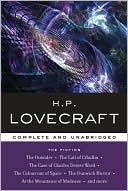A Music Behind the Wall: Selected Stories, Vol. 1
In her lifetime, Anna Maria Ortese received virtually every major Italian literary award, and, in a career spanning six decades, her last works became Italian bestsellers. Those who have read The Iguana know what extraordinary mysteries of human conscience and compassion Ortese's writings plumb. For several years we have been planning a fuller presentation of her work, selecting twenty stories from her many collections. These are published in two volumes, translated and introduced by the...
Search in google:
In her lifetime, Anna Maria Ortese received virtually every major Italian literary award, and, in a career spanning six decades, her last works became Italian bestsellers. Those who have read The Iguana know what extraordinary mysteries of human conscience and compassion Ortese's writings plumb. For several years we have been planning a fuller presentation of her work, selecting twenty stories from her many collections. These are published in two volumes, translated and introduced by the distinguished editor of our Italian series, Henry Martin. The first volume contains stories ranging in style and mode from realistic to the frankly visionary. Yet there is a steadfastness and coherency to Ortese's tales, and something original and almost entirely foreign to American writing. Can it be quite simply this: a conviction, verging upon certitude, of the validity, even necessity, of coincident or converging realities? To read one of Ortese's stories, which are almost impossible to describe in ordinary terms, is to tap into an unexplained circumstance, truly a condition of suspended disbelief, and to hear a voice by turns disquieting and strangely reassuring.Publishers WeeklyOrtese ( The Iguana ) has been a major force in Italian literature since her first volume appeared in 1937; her most recent book was published in Italy in 1987. The stories in this collection, the first of a projected two-volume set, are culled from this 50-year career. Martin supplies neither dates nor sources for the entries, displaying a disregard for chronology of which Ortese herself might well approve. Much of her idiosyncratic fiction deals with the vagaries of time: ``The Submerged Continent'' is characteristic of Ortese's themes and her deceptively ingenuous narratives. Here the author explores a woman's search to understand her past, unfolded as a complex, fable-like mix of memories, dreams and history. The narrator declares, ``Most human beings, if you question them, know that the past is what was, while yet believing that at present it is still to be found `somewhere.' . . . Up until two years ago I was convinced that all of the Past was gathered together in some part of life or the cosmos.'' So passionately does this collection elaborate on such seemingly banal mysteries that when a character in another story (``Winter Voyage'') says that ``life makes room now and then for encounters that do not belong to life, or to the times in which we live,'' Ortese has prepared the audience to believe her. (June)
\ Publishers Weekly\ - Publisher's Weekly\ Ortese ( The Iguana ) has been a major force in Italian literature since her first volume appeared in 1937; her most recent book was published in Italy in 1987. The stories in this collection, the first of a projected two-volume set, are culled from this 50-year career. Martin supplies neither dates nor sources for the entries, displaying a disregard for chronology of which Ortese herself might well approve. Much of her idiosyncratic fiction deals with the vagaries of time: ``The Submerged Continent'' is characteristic of Ortese's themes and her deceptively ingenuous narratives. Here the author explores a woman's search to understand her past, unfolded as a complex, fable-like mix of memories, dreams and history. The narrator declares, ``Most human beings, if you question them, know that the past is what was, while yet believing that at present it is still to be found `somewhere.' . . . Up until two years ago I was convinced that all of the Past was gathered together in some part of life or the cosmos.'' So passionately does this collection elaborate on such seemingly banal mysteries that when a character in another story (``Winter Voyage'') says that ``life makes room now and then for encounters that do not belong to life, or to the times in which we live,'' Ortese has prepared the audience to believe her. (June)\ \ \ \ \ Library JournalThe themes of this collection are evident in the opening stories, which are very much like essays. ``The Submerged Continent'' addresses the relationship between the self and the external world, the meaning of love, and the mystery of dreams, while ``Torture'' suggests that the horror of physical infirmity pales in comparison with the pain of unrequited love. For the most part, the stories lack traditional plots and have within them the thinnest layer of internal optimism, which is always in danger of suffocation by a much heavier, omnipresent, and oppressive strata of external discouragement and melancholy. Ortese seems to suggest that the inner life must constantly readjust or realign itself to cope with ever-changing, uncontrollable events, especially the whimsy of love. Ortese's remarkable career began in 1937, but because the stories are not dated, readers of this work cannot trace the development of her technique. Recommended for academic collections and for readers of serious, unconventional fiction.-Olivia Opello, Onondaga Cty. P.L., Syracuse, N.Y.\ \ \ John ShrefflerA prolific Italian writer, Ortese has, during her six-decade career, won many awards and produced several novels that have been best-sellers in Italy. Little of her work has been translated into English, and only one novel, "The Iguana", has been published in the U.S. This first of a projected two volumes of selected stories provides a welcome glimpse into her creative universe. The stories demonstrate an attractive, humane voice and a magical ability to make meaning and myth of daily existence. Emphatically not "psychological fiction," they yet present moments of vision in which the inner life realigns itself, asserting its prerogatives against reality. They show Ortese attempting to reach her stated goal to explore "regions of the soul where everything impossible takes place." They make up a weird and atmospheric collection that is impossible either to summarize or to put down.\ \








